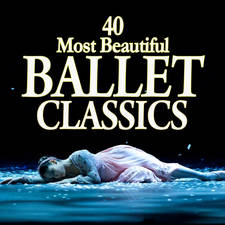Minimalist music: where to start
29 November 2012, 18:21 | Updated: 6 January 2017, 14:45
As composers tried to break free from tradition, musical styles got more and more off-beam at the beginning of the 20th Century. But a group of American composers went back to basics and re-adopted the age-old formula: rhythm + pitch = music. Sounds too simple? Sometimes the simplest ideas produce the most beautiful outcomes.
By the middle of the 20th Century, classical music was backing itself into a corner. Avant-garde composers wrote parody pieces designed to poke fun at the elitist musical establishment. Composers like Schoenberg and Boulez stripped away the idea of harmony and wrote music according to mathematical principles. Now the musical slate had been wiped clean and the rule book had been thrown out the window, a group of American composers started to rebuild classical music from its foundations, and Minimalism was born.
The beauty of Minimalism is that it started out as something so simple. In the most elaborate symphonies, it's easy to miss the best bits amongst all the action, but in the first minimalist pieces even the smallest change was of huge significance. Listen to Terry Riley's In C from 1964 - note how it's not a Symphony in C or a Concerto in C, it's just In C, plain and simple. The music starts with just the note C, played over and over again in a steady rhythm. Once your ears are used to the hypnotic rhythm and pitch, any unexpected notes or rhythms jump out from the texture with a striking impact.
It's not just instrumental pitches that are used to dramatic effect. It's Gonna Rain by another key Minimalist, Steve Reich, uses speech from a sermon and sets it on a loop. While it might be slightly odd hearing the same words over and over again (listening to 'it's gonna rain, it's gonna rain, it's gonna rain' can get a bit depressing) eventually your brain ignores the meaning and starts to become hypnotised by the pitch and rhythm of the text. Reich used speech again in his 1988 composition, Different Trains, which sampled interviews with Americans and Europeans about the years before, during, and after World War II. The speech-inspired melodies for a string quartet, accompanied by train sounds and chug-chugging rhythms recorded onto tape, make for a poignant musical journey - especially remarkable considering the simplicity of the music.
Composers like Philip Glass took this Minimalist formula and developed it - to huge success. He rocked the opera world with his Minimalist masterpiece, Einstein On The Beach. Where previously opera had been oversized and over-indulgent, Glass found a balance between innocence and boundary-breaking innovation with his exciting new sound world.
If Glass' early operas with their relentless undulating rhythms don't float your boat, there's plenty of modern Minimalist music to explore. Italian composer Ludvico Einaudi uses basic harmonies and repetitive tunes which gradually blossom into simple yet beautiful piano studies. Arvo Pärt, too, takes music back to basics in his breathtaking Spiegel im Spiegel, (Mirror in the Mirror) which captures enough emotion in the opening three raindrop-like notes from the piano to break your heart, even before the violin line floats in over the top.






















